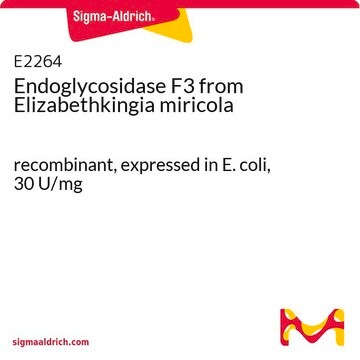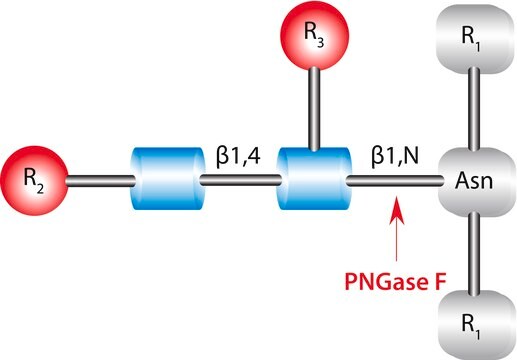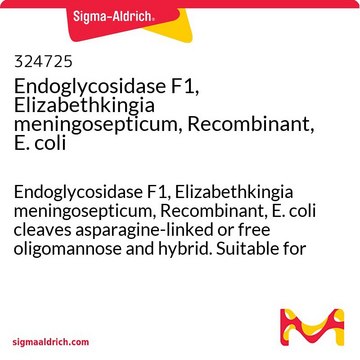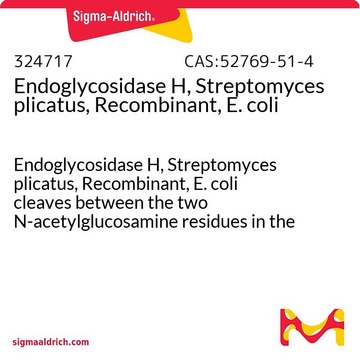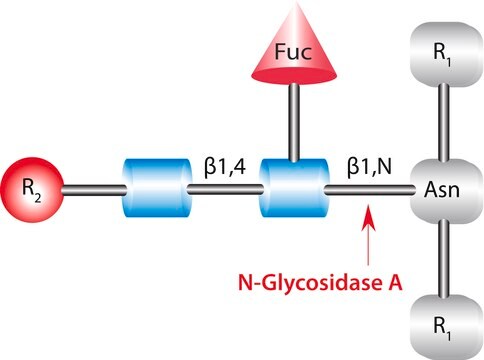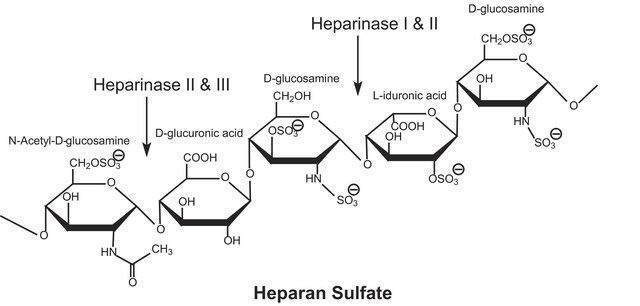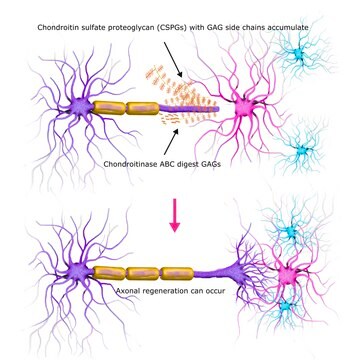E9762
Endoglycosidase F1 from Elizabethkingia miricola
recombinant, expressed in E. coli, ≥16 U/mg, buffered aqueous solution
Synonym(s):
Endo F1, Endo-β-N-acetylglucosaminidase F1, Endoglycosidase F1 from Chryseobacterium meningosepticum, Endoglycosidase F1 from Elizabethkingia meningoseptica, Endoglycosidase F1 from Flavobacterium meningosepticum
About This Item
Recommended Products
recombinant
expressed in E. coli
Quality Level
conjugate
(N-linked)
form
buffered aqueous solution
specific activity
≥16 U/mg
mol wt
32 kDa
shipped in
wet ice
storage temp.
2-8°C
Looking for similar products? Visit Product Comparison Guide
General description
Application
Biochem/physiol Actions
Packaging
Unit Definition
Physical form
Storage Class Code
10 - Combustible liquids
WGK
WGK 1
Flash Point(F)
Not applicable
Flash Point(C)
Not applicable
Personal Protective Equipment
Certificates of Analysis (COA)
Search for Certificates of Analysis (COA) by entering the products Lot/Batch Number. Lot and Batch Numbers can be found on a product’s label following the words ‘Lot’ or ‘Batch’.
Already Own This Product?
Find documentation for the products that you have recently purchased in the Document Library.
Customers Also Viewed
Articles
Explore various strategies for deglycosylating N-linked glycans involving PNGase F, PNGase A (Glycopeptidase A), and even native and sequential deglycosylation with endoglycosidases like Endoglycosidase H, Endoglycosidase F, and exoglycosidases.
Our team of scientists has experience in all areas of research including Life Science, Material Science, Chemical Synthesis, Chromatography, Analytical and many others.
Contact Technical Service
